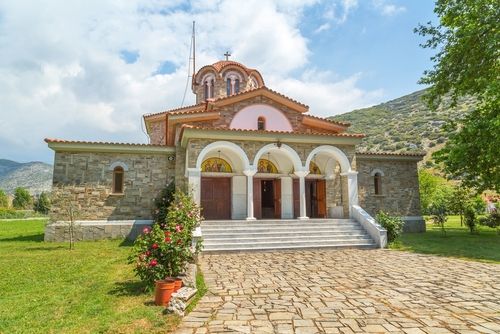 Baptism by water is an important ritual in many houses of worship. Adherents look to clergy for guidance, especially after deciding to affirm their spiritual walk. Whether you’re a seasoned pastor or new to ministry, think about fulfilling the baptism needs of your congregation. While some ministries manage a temporary solution with swimming pools, you may be considering a permanent solution. Consider these details as you plan.
Baptism by water is an important ritual in many houses of worship. Adherents look to clergy for guidance, especially after deciding to affirm their spiritual walk. Whether you’re a seasoned pastor or new to ministry, think about fulfilling the baptism needs of your congregation. While some ministries manage a temporary solution with swimming pools, you may be considering a permanent solution. Consider these details as you plan.
Making Room
One of the main considerations for building a baptistry is space. Do you have enough room for all the necessary elements? The right baptistry needs enough space for multiple people to stand. While some rituals involve the clergy and the person being baptized, you should think about having room for support staff. This includes someone to assist people getting in and out of the pool as well as those supporting immersion. Beyond the actual pool, your baptistry needs to have enough room for stairs, handrails, water supply, and processing.
Building the Baptistry
Think of a new baptistry as a church improvement project, not unlike a major home project. Depending on your ability and knowledge, you might consider taking a DIY approach. While this may appear to save money, be aware that certain mistakes on your part may delay the project, requiring costly repairs by a professional. It’s important to have a realistic sense of your abilities as well as a clear idea of your budget and time frame. Keep this also in mind if there are volunteers who have the skill and knowledge to build a baptistry. It’s an opportunity for those who wish to serve according to their abilities.
If you decide to hire a professional, it’s important to find a contractor with a proven track record of successfully building baptistries. Your provider should understand the unique construction and maintenance requirements. You don’t want your pool built in a way that makes it expensive or difficult to maintain in the future. Professionals should also be knowledgeable about any local permitting regulations as well as the best subcontractors such as plumbers and electricians to make things work properly. The right contractor can help you explore options, answer questions, and come up with a solution that works for your ministry.
Choosing Materials
You have options when it comes to the materials for your pool. Think carefully about your choice with respect to appearance, cost to install, and cost to maintain, especially if you’re not working with a pro.
- Ceramic tile: The look of tile is one that is familiar and comforting, resembling what is found in bathrooms. Ceramic tiles can become very slick, creating a slipping hazard. They also can crack, and regrouting will be necessary from time to time.
- Steel: When it comes to durability, steel’s reputation is well known. Periodic painting is necessary to keep steel looking its best.
- Sheet metal: While sheet metal has applications in water containment, the seams are soldered together, leading to cracks after repeated use.
- Fiberglass: A type of resin, fiberglass comes in an assortment of colors that can work with your aesthetic. It is relatively low maintenance, staying waterproof for years without the need for regrouting.
Materials matter when it comes to your baptismal pool. Choose thoughtfully.
Maintaining the Pool
You’ll need to think about how long your baptistry holds water. Leaving water in the pool poses a risk, especially if there’s a chance of someone working in and around the pool unattended. Long-term exposure to moisture can lead to damage to the pool’s interior. Talk to your contractor or look into a provider of pool maintenance for suggestions on products and coatings that extend the life of your baptistry.
As a religious leader, you may be expected to baptize members of your faith. It’s important to also provide facilities that are functional, clean, and safe. Consider these tips as you think about building a baptistry that meets both spiritual and building specifications.